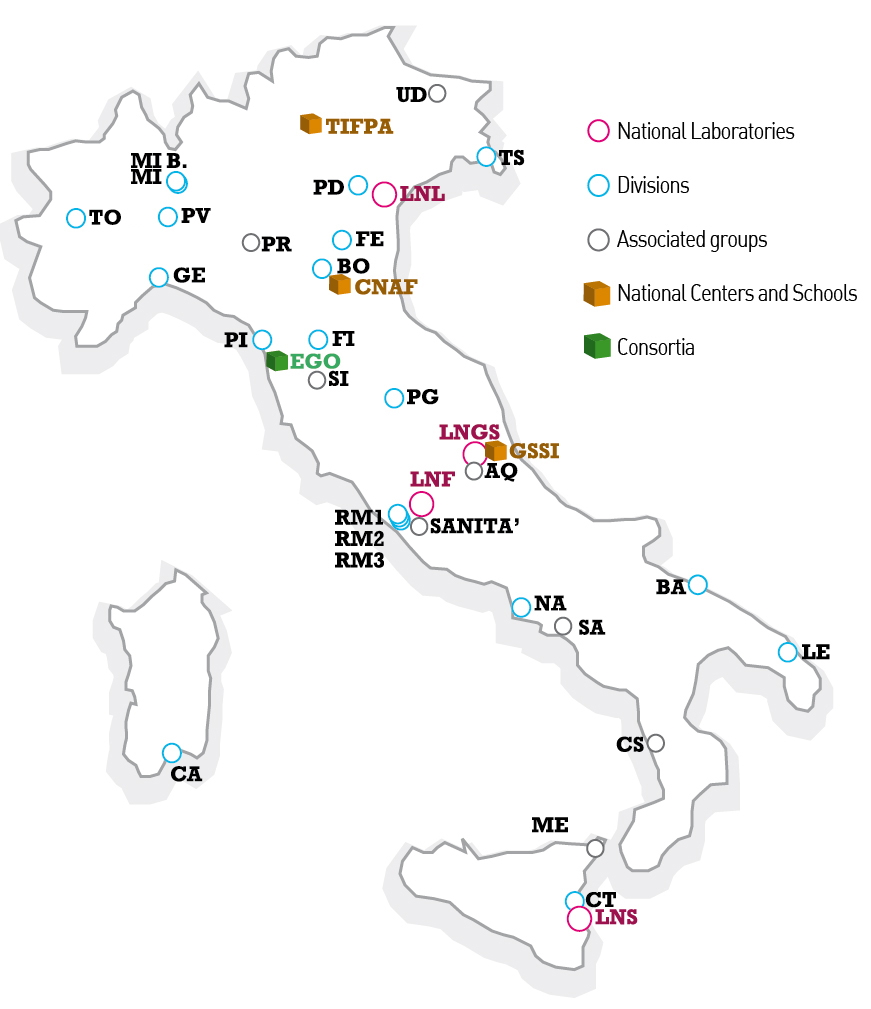Research
Our approach consists in splitting the workflow leading to measurements and NP searches in tasks, organized in 4 work packages (WPs), each of which we aim at optimizing with ML techniques; a fifth WP is devoted to general ML applications and insight on ML algorithms:
WP1: THEORY INPUTS
- Extraction of theory inputs: SM parameters and Parton Distribution Functions;
- Simulation of MC events beyond LO;
- Inclusion of theory and detector effects: showering, hadronization and detector response;
WP2: DATA ACQUISITION
- Implementation of algorithms for online triggers, taggers, anomaly detection and data quality monitoring;
- Implementation of algorithms for offline analysis through object reconstruction, jet clustering, boosted object tagging, particle flow, etc.
WP3: DATA ANALYSIS AND STATISTICAL INFERENCE
- Perform statistical inference within and beyond the SM through several techniques with varying level of model dependence: anomaly detection, statistical learning, parametrized neural networks, model dependent searches, etc.;
WP4: RESULTS PRESENTATION, DISTRIBUTION AND PRESERVATION
- Present results delivering full likelihood (or even full statistical model) information and by publishing enough information to allow for preservation and reinterpretation;
WP5: GENERAL ML TOOLS AND OTHER STUDIES
- Develop general ML tools such as physics inspired evaluation metrics and new sampling and integration techniques suitable for different tasks;
- Implement physics informed algorithms that exploit symmetries or properties of the data;
- Study general properties of density estimation and generative models performances;
- Emulation of self-consistent mean field as a function of particle/nucleon positions to accelerate nuclear interaction models of interest for medical applications;
